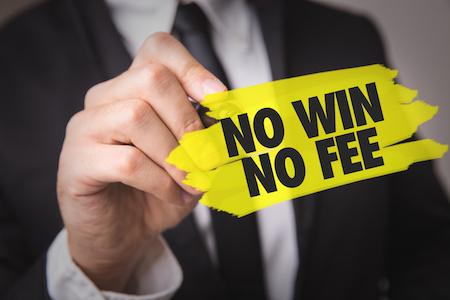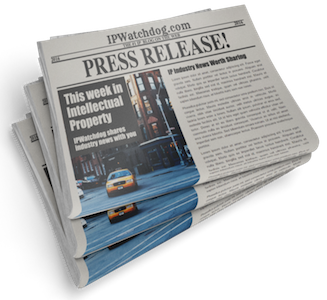 CHICAGO, Jan. 23, 2018 — The American Bar Association filed an amicus brief today with the United States Court of Appeals for the Federal Circuit, arguing that a provision of U.S. patent law does not give the government the right to be reimbursed for its lawyers’ expenses regardless of which side prevails in a court appeal of an administrative patent decision.
CHICAGO, Jan. 23, 2018 — The American Bar Association filed an amicus brief today with the United States Court of Appeals for the Federal Circuit, arguing that a provision of U.S. patent law does not give the government the right to be reimbursed for its lawyers’ expenses regardless of which side prevails in a court appeal of an administrative patent decision.
Under patent law, an applicant dissatisfied with the decision of the U.S. Patent Trial and Appeal Board can seek review by filing an action against the U.S. Patent and Trademark Office (USPTO) in U.S. District Court, but under Section 145 of the law “all expenses of the proceedings shall be paid by the applicant.” The USPTO recently re-interpreted “all expenses” to include payment for its lawyers.
In the case at issue, the U.S. District Court for the Eastern District of Virginia granted the USPTO $33,103.89 in expert fees, but denied requested attorney fees of nearly $80,000. On appeal, a three-judge panel of the Washington, D.C.-based Federal Circuit split 2-1 in determining that the language approved by Congress includes lawyer fees. The ABA’s amicus brief supports the petition by Nantkwest Inc., which owns the cancer treatment patent application in question, and asks the full Federal Circuit to reverse that decision.
“For nearly two centuries, the phrase ‘all expenses of the proceedings’ has been understood universally to mean that the applicant must pay only the PTO’s out-of-pocket expenses for the proceedings, like travel costs and expert witness fees,” the ABA brief said. “The PTO now urges a radical, novel departure from that longstanding interpretation: That the provision actually requires the applicant to pay for the government’s attorneys any time the applicant invokes Section 145, even if the applicant prevails against the government in the proceedings.”
The ABA brief also argued that if the panel’s decision was allowed to stand, patent applicants “who lack sufficient funds to pay for their adversary’s lawyers would be blocked from the benefits” provided by the provision. In addition, the brief said there is no evidence that Congress, in creating Section 145, intended that attorney fees be covered and that the longstanding “American Rule,” dictating that each party cover its own lawyer costs, should apply absent statutory authorization, which in this case is absent.
“The Supreme Court has made clear that there should be no deviation from the American Rule unless ‘explicit statutory authority’ exists to do so,” the ABA brief continued, noting: that “over 200 federal statutes and almost 2,000 state statutes provide for shifting of attorney’s fees … and neither the PTO nor the courts have located a single one that does so by referring only to ‘expenses’.”
The amicus brief in Nantkwest, Inc. v. Joseph Matal is available here.

![[IPWatchdog Logo]](https://ipwatchdog.com/wp-content/themes/IPWatchdog%20-%202023/assets/images/temp/logo-small@2x.png)

![[Advertisement]](https://ipwatchdog.com/wp-content/uploads/2024/04/Patent-Litigation-Masters-2024-sidebar-early-bird-ends-Apr-21-last-chance-700x500-1.jpg)

![[Advertisement]](https://ipwatchdog.com/wp-content/uploads/2021/12/WEBINAR-336-x-280-px.png)
![[Advertisement]](https://ipwatchdog.com/wp-content/uploads/2021/12/2021-Patent-Practice-on-Demand-recorded-Feb-2021-336-x-280.jpg)
![[Advertisement]](https://ipwatchdog.com/wp-content/uploads/2021/12/Ad-4-The-Invent-Patent-System™.png)







Join the Discussion
2 comments so far.
Joachim Martillo
January 24, 2018 11:21 amThe Association of Amicus Counsel, Realvirt, LLC, Isshiki & Co., and Hiraide & Takahashi acting together as amici curiae in support of plaintiff-appellee Nantkwest, Inc. have submitted this amicus brief in Nantkwest, Inc. v. Joseph Matal.
https://drive.google.com/open?id=0B7t3h6mcvpPEN1ZKTWNNc2k4MFRKS2g2LVpwb3NDcTJ3bUdR
Realvirt, LLC, is the patent prosecution entity for the 07/773,161 Application, which claims an invention that is a key component of modern cloud computing and of which I am the primary inventor.
I no longer have a personal interest in the technology, but I am aggrieved that the USPTO arbitrarily and capriciously is attempting to deny my inventorship.
Curious
January 23, 2018 08:53 pmWhy and I not surprised that: (i) the USPTO would push for such an interpretation and (ii) that Dyk and Prost would buy that interpretation. If there is a decision in which the patentee (or applicant) gets royally screwed, Dyk usually has his fingers on it.